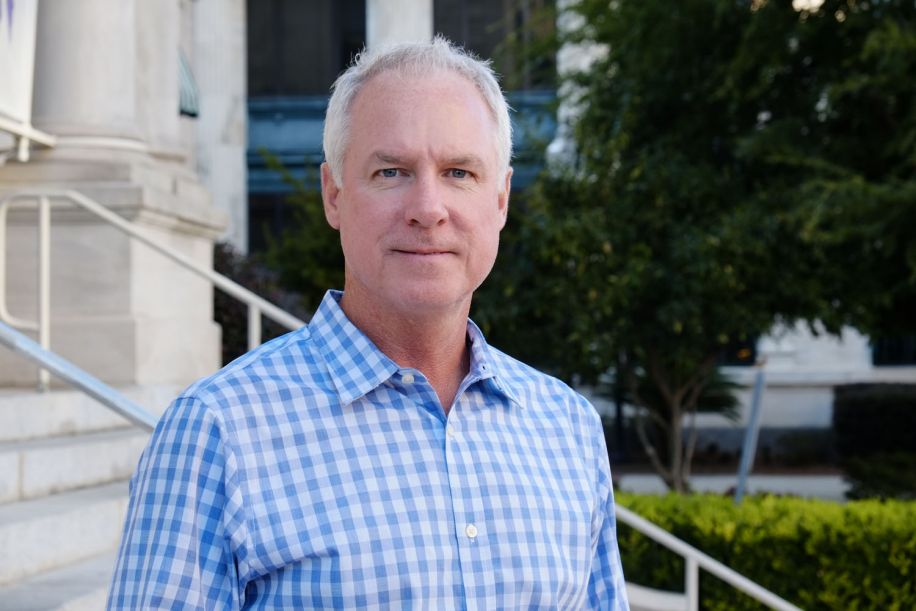Meet Curt Morse, the new executive director of the Downtown Improvement Board, a quasi-governmental agency charged with promoting and enhancing the area as a vibrant cultural and commercial destination. Morse received four of five votes from the board, cementing his role as the new champion of all things Downtown. He has lived in Pensacola since 2004 and has experience owning and managing small businesses, as well as serving on the boards of various community organizations.
Downtown Crowd caught up with him to discuss his vision, his challenges, and how he views the DIB as a membership organization that should be more focused on its constituents.
So what do you feel the greatest challenge facing the DIB is?
That question resonates with everyone I’ve spoken to. You know, communication is always the very first point of business, and I don’t believe the DIB as an organization has done a great job communicating with its constituents. This is a membership organization in a membership economy. The people that the DIB serves have chosen to be members by being in the district. They pay a fee of two mills of property tax, so we need to be communicating back to the membership so that they understand the value of choosing to be here. I want to reinforce that regularly. It seems to me a very obvious objective, but it’s not one that I think has been effectively done.
What cities are you looking to for inspiration?
The product that we have is love. I love this city and I love reinforcing that love of our city. We need to attract those that want to participate in this great place, and remind people who chose us to begin with why they made that choice. The people who are here, they’re here whether they’re newcomers or multi-generational residents. So we need to be continually selling that product of love.
I look to cities like New Orleans, Charleston, Wiliamsburg and St. Augustine. Those cities have a historic aspect that is part of people’s great attachment to those places. I don’t believe we’ve tapped into our history deep enough to leverage that yet.
How do you plan to navigate tension with City Council and other local government entities?
I come in here with no bone to pick. Councilman Bare and I actually go to church together. I see no reason why executive directors can’t have diplomatic skills. I’m a small business guy. I live and die by customers and I’m driven by customer care and satisfaction, delivering on their expectations, so when I communicate and work with the public sector, I want to establish the best common relationship that we can. And you’re not gonna make everyone happy. You have to pick and choose your priorities and values and be the best for your constituents. I go to bat for them. I believe if we go out there and start communicating that message, the naysayers will ultimately go away, because we’ll be staying true to our core.
What is your vision for the city?
That’s a tough one to answer until I really get in there. But I will tell you I’ll be thinking like the business owners. There’s so much being done right now behind the scenes that people may not realize. You know, these exciting projects take years to come to fruition. I want to support the guys who have the means and desire to see the city evolve into this cosmopolitan place. Those things are exciting and I want the same thing. I want to see empty space utilized. I don’t want to squander opportunity. And I’d even look at expanding the reach of the DIB to encompass even more. I don’t want to grow just to grow, but I do want to grow if we can further satisfy our current customers and potential new customers.
The people who were here before made substantial inroads to where we are today. I have a vision of building on that and I want to execute on that. I want to take the board’s vision and make sure we’re both traveling in the same direction. I am inspired by this 12-year love affair my family and I have had with Pensacola, so now it’s all about how can I give back? I want our change to be meaningful and measurable.
What do you see as the DIB’s primary mission?
You know, Gallup did a survey of 25 cities and 43,000 people several years ago and discovered a handful of attributes that created attachment to a city. One is social offerings. People want events, they want vibrant space, and they want great social places for people to mix and mingle. Another one is openness; openness for all races, disciplines and more. And finally beauty and aesthetics: pretty parks, public art, putting effort into how we look and making sure we look our best. Those are the issues that are important to the constituents and those are the issues that are important to me.
